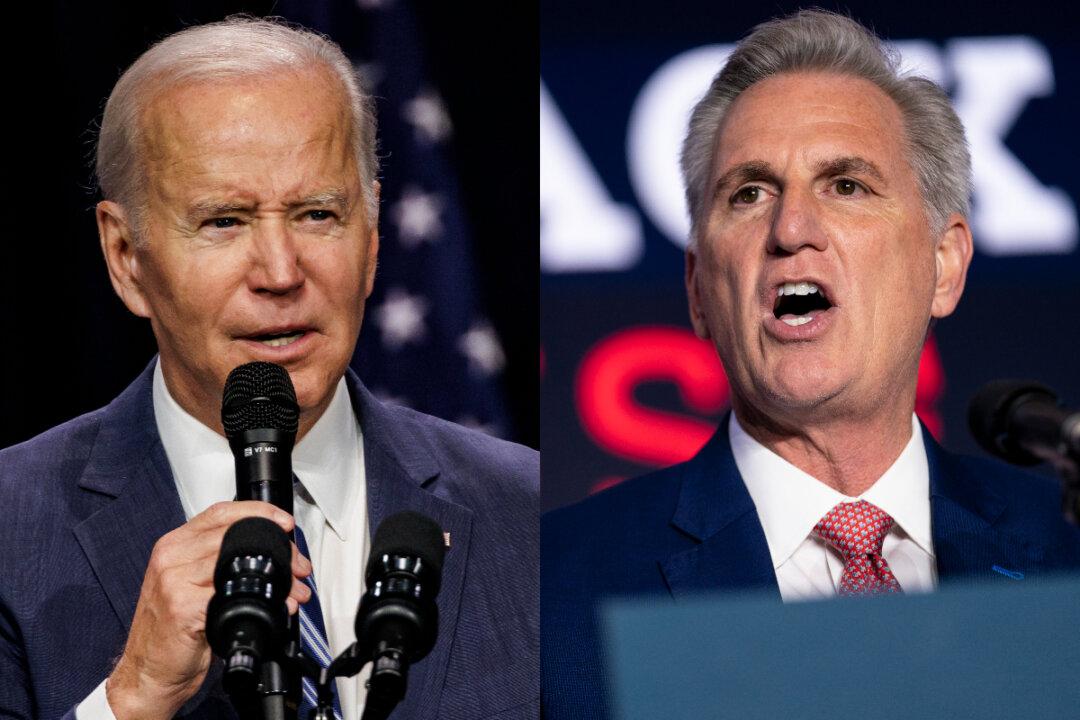As the debt ceiling standoff grinds toward the so-called X-date, when the government can no longer borrow and must rely on incoming revenue to settle its obligations, the idea of invoking the 14th Amendment as a way to avoid a possible debt default has come into the spotlight.
Invoking the 14th Amendment—using executive power to declare the debt ceiling unconstitutional—was floated in several interviews with top Biden administration officials in recent days as a possible last-ditch measure to prevent a U.S. sovereign debt default if negotiations on raising the debt cap fail.





